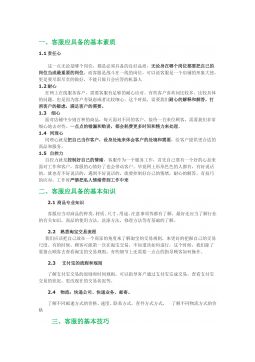maternal society:母系社会
working mother:职业母亲
more than doubled:远远超出了以前的两倍
but this practice has become so widespread that the working mothe
r is now a not unusual factor in a child's home life,the number of
married women in employment having more than doubled in the la
st twenty-five years.
the number of married women……years
是个省略谓语的独立主格句,主语与主句的
主语不同。
something 后置定语èèbe of 结构
smething valuable greatly/smething greatly valuable
prevent from
L9 Curiosities of Animal Life
Not all sounds made by animals serve as language, and we have on
ly to turn to that extraordinary discovery of echo-location in bats t
o see a case in which the voice plays a strictly utilitarian role.
To get a full appreciation of what this means we must turn first to s
ome recent human inventions. Everyone knows that if he shouts in
the vicinity of a wall or a mountainside, an echo will come
back. The further off this solid obstruction the longer time will ela
pse for the return of the echo. A sound made by tapping on the hull
of a ship will be reflected from the sea bottom, and by measuring t
he time interval between the taps and the receipt of the echoes the
depth of the sea at that point can be calculated. So was born the ec
ho-sounding apparatus, now in general use in ships. Every solid ob
ject will reflect a sound, varying according to the size and nature o
f the object. A shoal of fish will do this. So it is a comparatively si
mple step from locating the sea bottom to locating a shoal of fish.
With experience, and with improved apparatus, it is now possible
not only to locate a shoal but to tell if it is herring, cod, or other we
ll-known fish, by the pattern of its echo.
A few years ago it was found that certain bats emit squeaks and by
receiving the echoes they could locate and steer clear of obstacles-
-or locate flying insects on which they feed. This echo-location in
bats is often compared with radar, the principle of which is similar.
L10 Thoughts in Wilderness
In our new society there is a growing dislike of original, creative
men. The manipulated do not understand them; the manipulators f
ear them. The tidy committee men regard them with horror, knowi
ng that no pigeonholes can be found for them. We could do with a
few original, creative men in our political life—if only to create so
me enthusiasm, release some energy--but where are they? We are a
sked to choose between various shades of the negative. The engine
is falling to pieces while the joint owners of the car argue whether
the footbrake or the handbrake should be applied. Notice how the
cold, colourless men, without ideas and with no other passion but a
craving for success, get on in this society, capturing one plum after
another and taking the juice and taste out of them. Sometimes you
might think the machines we worship make all the chief appointm
ents, promoting the human beings who seem closest to them. Betw
een midnight and dawn, when sleep will not come and all the old
wounds begin to ache,I often have a nightmare vision of a future w
orld in which there are billions of people, all numbered and registe
red, with not a gleam of genius anywhere, not an original mind, a r
ich personality, on the whole packed globe. The twin ideals of our
time, organization and quantity, will have won for ever.
L11 Spies in Britain
Alfred the Great acted as his own spy, visiting Danish camps disgu
ised as a minstrel. In those days wandering minstrels were welcom
e everywhere. They were not fighting men, and their harp was thei
r passport. Alfred had learned many of their ballads in his youth, a
nd could vary his programme with acrobatic tricks and simple conj
uring.
While Alfred's little army slowly began to gather at Athelney, the
king himself set out to penetrate the camp of Guthrum, the comma
nder of the Danish invaders. These had settled down for the winter
at Chippenham: thither Alfred went. He noticed at once that discip
line was slack: the Danes had the selfconfidence of conquerors, an
d their security precautions were casual. They lived well, on the pr
oceeds of raids on neighbouring regions. There they collected wo
men as well as food and drink, and a life of ease had made them so
ft.
Alfred stayed in the camp a week before he returned to Athelney.
The force there assembled was trivial compared with the Danish h
orde. But Alfred had deduced that the Danes were no longer fit for
prolonged battle : and that their commissariat had no organization,
but depended on irregular raids.
So, faced with the Danish advance, Alfred did not risk open battle
but harried the enemy. He was constantly on the move, drawing th
e Danes after him. His patrols halted the raiding parties: hunger as
sailed the Danish army. Now Alfred began a long series of skirmis
hes--and within a month the
Danes had surrendered. The episode could reasonably serve as a u
nique epic of royal espionage!
L12 The Language of Hollywood
What characterizes almost all Hollywood pictures is their inner em
ptiness. This is compensated for by an outer impressiveness. Such
impressiveness usually takes the form of truly grandiose realism.
Nothing is spared to make the setting, the costumes, all of the surf
ace details correct. These efforts help to mask the essential emptin
ess of the characterization, and the absurdities and trivialities of th
e plots. The houses look like houses, the streets look like streets; th
e people look and talk like people; but they are empty of humanity,
credibility, and motivation. Needless to say, the disgraceful censor
ship code is an important factor in predetermining the content of th
ese pictures. But the code does not disturb the profits, nor the enter
tainment value of the films; it merely helps to prevent them from b
eing credible. It isn't too heavy a burden for the industry to bear. In
addition to the impressiveness of the settings, there is a use of the
camera, which at times seems magical. But of what human import
is all this skill, all this effort, all this energy in the production of ef
fects, when the story, the representation of life is hollow, stupid, ba
nal, childish ?

 2025-02-28 8
2025-02-28 8
 2025-02-28 6
2025-02-28 6
 2025-02-28 6
2025-02-28 6
 2025-02-28 5
2025-02-28 5
 2025-02-28 6
2025-02-28 6
 2025-02-28 5
2025-02-28 5
 2025-02-28 4
2025-02-28 4
 2025-02-28 7
2025-02-28 7
 2025-02-28 7
2025-02-28 7
 2025-02-28 6
2025-02-28 6








 渝公网安备50010702506394
渝公网安备50010702506394
